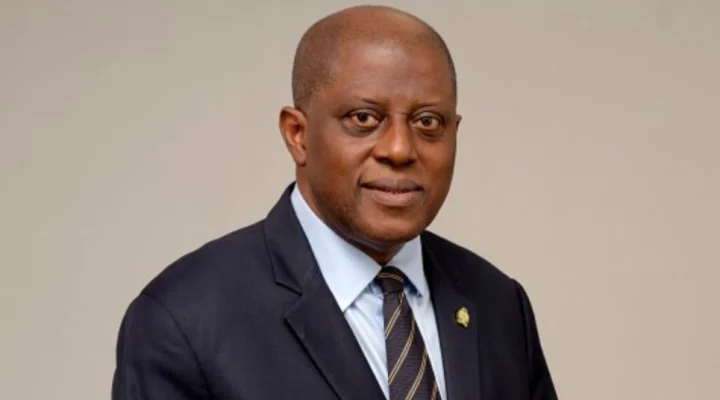The Governor of the Central Bank of Nigeria (CBN), Mr. Olayemi Cardoso, has described Nigeria’s youthful population as the country’s greatest asset and urged them to take the lead in driving economic transformation, innovation, and nation-building. He made this known during the inaugural CBN Governor’s Lecture Series held at the Lagos Business School, themed “Next Generation Leadership in Monetary Policy and Nation Building.”
Cardoso emphasized that with over half of Nigeria’s population under 30 years old and a median age of 18, the nation’s future rests squarely on the shoulders of its young people. He noted that this demographic strength presents both a tremendous opportunity and a potential risk depending on how effectively the country nurtures and empowers its youth. According to him, the energy, creativity, and resilience of young Nigerians must be harnessed to drive national progress and stability.

The CBN Governor explained that leadership in the new era must be defined by integrity, innovation, and transparency. He noted that young Nigerians must see themselves not just as beneficiaries of reforms but as the key drivers of the country’s development. He stated that his administration at the CBN has focused on restoring credibility, rebuilding trust in monetary policy, and laying the foundation for sustainable economic growth.
Cardoso outlined several measures the apex bank has implemented to stabilize the economy, including the clearance of a large backlog of foreign exchange obligations, the unification of the multiple exchange rate windows, and the reintroduction of transparency measures such as the publication of the CBN’s financial statements. These actions, he said, have helped restore investor confidence, reduce inflationary pressures, and strengthen Nigeria’s foreign reserves.
He disclosed that inflation, which had soared to nearly 35 percent before the reforms, has begun to moderate due to consistent monetary policies and better coordination with fiscal authorities. The country’s external reserves, he added, have improved to over $42 billion, providing the economy with a stronger buffer against external shocks. Cardoso expressed optimism that with continued discipline and transparency, Nigeria’s macroeconomic indicators would continue to strengthen.
According to him, monetary policy is not merely about setting interest rates or controlling inflation but also about contributing to broader national development. He encouraged young professionals, academics, and entrepreneurs to apply creativity and data-driven thinking to public service and leadership. He said that the next generation must redefine leadership by combining ethical values with innovation and by adopting a results-oriented mindset.
The CBN Governor stressed the importance of inclusive growth, arguing that economic reforms must have a direct impact on the welfare of ordinary Nigerians. He said that expanding access to finance, improving digital banking systems, and promoting financial literacy among underserved communities are vital for achieving equitable growth. Cardoso added that inclusive economic policies must ensure that no segment of the population is left behind, especially the youth, women, and rural dwellers.
He also warned that credibility and trust are critical for effective leadership and institutional stability. Without credibility, he said, policies lose impact, and citizens lose confidence. He emphasized that the CBN’s recent reforms were guided by a commitment to rebuild the bank’s reputation and restore the faith of both local and international stakeholders. Cardoso described national reputation as a priceless asset that, once lost, takes time to rebuild but can unlock immense opportunities when regained.
Through the newly introduced CBN Governor’s Lecture Series, Cardoso said the apex bank aims to promote knowledge exchange, public engagement, and youth participation in policy discussions. The lecture series, he explained, will serve as a platform for bridging the gap between policymakers, academics, and the younger generation, fostering a deeper understanding of monetary policy and governance issues.
He urged young Nigerians to take ownership of the country’s future and become active participants in shaping its destiny rather than remaining passive observers. He noted that the challenges confronting Nigeria—ranging from unemployment to economic volatility—require innovative thinking, courage, and a willingness to challenge the status quo.
Cardoso concluded by reminding the youth that criticism has its place, but constructive participation and commitment to nation-building are even more important. He called on them to rise above cynicism and take bold steps to transform Nigeria into a nation that reflects their aspirations and potential. According to him, Nigeria’s most valuable resource is not its oil or minerals but its people—especially its vibrant, talented, and determined youth—who hold the key to the country’s future prosperity.
Support InfoStride News' Credible Journalism: Only credible journalism can guarantee a fair, accountable and transparent society, including democracy and government. It involves a lot of efforts and money. We need your support. Click here to Donate
